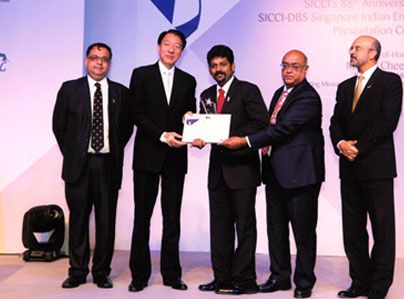Productivity
Understanding the Importance of Software Testing in Development

At Xsosys Technology (Singapore) Pte. Ltd., we are dedicated to delivering exceptional software solutions that meet the highest standards of quality and reliability. Our commitment to excellence is evident in our rigorous software testing practices, which ensure that every product we develop performs flawlessly and meets the needs of our clients. In this article, we delve into the importance of software testing in the development process, highlighting its benefits and impact on producing superior software products.
In the dynamic world of software development, the role of software testing is more crucial than ever. For companies like Xsosys Technology (Singapore) Pte. Ltd., software testing is not just a phase in the development lifecycle but a fundamental practice that ensures the delivery of high-quality, reliable software solutions. This article explores the significance of software testing, its benefits, and its impact on delivering superior software products.
The Essence of Software Testing
Software testing is a systematic process aimed at evaluating and verifying that a software application or system meets specified requirements and performs as expected. For Xsosys, testing is integral throughout the development cycle, from initial design through to deployment and maintenance. This thorough approach helps in identifying defects early and ensures that the software meets the needs of end-users.
Why Software Testing Matters
Ensuring Quality and Functionality
At Xsosys, the commitment to delivering high-quality software drives the importance of thorough testing. By rigorously evaluating applications against predefined criteria, developers can identify and address defects early in the development process. This proactive approach helps in creating robust products that function reliably and meet user expectations.
Minimizing Risks
Software defects can range from minor glitches to major disruptions. For a company like Xsosys, software testing is essential in minimizing these risks. Early detection of issues reduces the likelihood of costly post-release fixes and ensures that the software operates smoothly, mitigating potential operational risks.
Enhancing User Experience
A key aspect of software testing is validating the user experience. Xsosys emphasizes usability testing to ensure that their applications are user-friendly, intuitive, and meet the needs of their target audience. By gathering user feedback and making necessary improvements, Xsosys ensures that the software delivers an exceptional user experience.
Boosting Reliability
Reliability is crucial for software success. Xsosys focuses on rigorous testing to ensure that their applications perform consistently under various conditions. Performance and stress tests are conducted to verify that the software can handle different loads and continue to function effectively.
Reducing Development Costs
Investing in software testing might seem costly initially, but it ultimately leads to significant savings. For Xsosys, identifying and addressing defects early in the development process is more cost-effective than dealing with issues after release. This approach helps avoid the expense of post-release patches and customer support.
Compliance and Standards
Many industries require software to adhere to specific regulations and standards. Xsosys ensures that their software meets these compliance requirements through thorough testing. Whether it’s security, data protection, or industry-specific guidelines, compliance testing helps avoid legal issues and ensures that the software meets regulatory standards.
Facilitating Continuous Improvement
Software testing practices evolve alongside the development lifecycle. Xsosys is committed to continuous improvement by incorporating feedback and lessons learned from previous projects. This ongoing refinement of testing practices contributes to the overall enhancement of software development processes.
Types of Software Testing
Xsosys employs a range of testing types and methodologies to ensure comprehensive evaluation of their software. Some of the common types include:
- Unit Testing : Focuses on individual components or modules of the software to ensure each unit functions correctly in isolation.
- Integration Testing : Examines interactions between different modules to verify they work together as intended.
- System Testing : Evaluates the complete software system to ensure it meets all specified requirements and functions as a whole.
- Acceptance Testing : Conducted to determine whether the software meets acceptance criteria and is ready for release, often involving end-users or stakeholders.
- Performance Testing : Assesses the software's performance under various conditions, including load, stress, and scalability testing.
- Security Testing : Identifies vulnerabilities and potential security threats to ensure the software is protected against malicious attacks.
- Usability Testing : Evaluates the software's user interface and overall user experience to ensure it is intuitive and user-friendly.
- Regression Testing : Ensures that new changes or enhancements do not negatively impact the existing functionality of the software.
Best Practices for Effective Software Testing
To maximize the benefits of software testing, Xsosys follows best practices that enhance the effectiveness of their testing efforts:
- Early and Frequent Testing : Testing begins early in the development process and is conducted frequently to catch defects early and reduce the risk of costly fixes later.
- Automated Testing : Implementing automated testing tools and scripts streamlines repetitive testing tasks, increases test coverage, and improves efficiency.
- Comprehensive Test Plans : Detailed test plans and test cases cover all aspects of the software, including functionality, performance, and security.
- Collaborative Approach : Collaboration between developers, testers, and stakeholders ensures clear communication and alignment on testing objectives and requirements.
- Continuous Integration and Testing : Integrating testing into the continuous integration (CI) process allows for automated testing and immediate feedback on code changes.
- Regular Review and Improvement : Continuous review and refinement of testing processes, tools, and methodologies based on feedback and lessons learned contribute to the overall enhancement of software development practices.
Conclusion
Software testing is fundamental to achieving success in software development. For companies like Xsosys Technology (S) Pte. Ltd., ensuring the quality, functionality, and reliability of software applications through rigorous testing is essential. Investing in effective software testing practices not only reduces risks and development costs but also enhances user experience and supports continuous improvement. As technology advances and software development practices evolve, the importance of software testing remains vital in creating high-quality, reliable software solutions.












